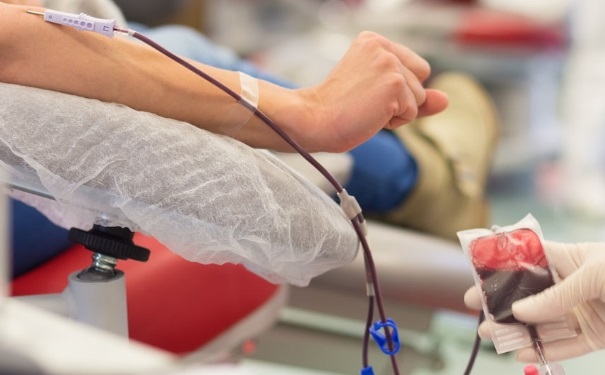The benefits of blood donation
When we mention blood donation, our first thought is to save lives, so what benefits does blood donation have to oneself besides benefiting others?

1. Blood donation has a good long-term impact on the heart-brain-brain system: it can prevent and relieve blood viscosity and reduce the occurrence of cardiovascular and cerebrovascular diseases. As people’s living standards increase and physical activity decreases, the body accumulates more and more. More fat, and long-term high level, commonly known as blood thick. The result of blood thickening is that fat layers adhere to the blood vessel wall, eventually forming arteriosclerosis, and the blood vessel elasticity is reduced, resulting in cardiovascular and cerebrovascular diseases. Regular blood donation reduces some of the body’s viscous blood and then fills the blood volume through normal drinking water, allowing the blood to naturally dilute and the blood lipids to fall. Adhering to proper blood donation can reduce all the components in the blood. The greatest reduction is in blood iron and protein. It also reduces the viscosity of the blood and accelerates blood flow. Oxygen supply increased, people feel relaxed and clear-headed. Can effectively reduce arteriosclerosis, thrombosis and cerebrovascular accidents and myocardial infarction and other illnesses.
2. Regular donation of blood can improve hematopoietic function: since the birth of the fetus, bone marrow has become the main hematopoietic organ. With age, hematopoietic function and hematopoietic growth rate gradually decreased. After blood donation, due to the reduction of the number of blood cells, it stimulates the bone marrow, promotes the release of mature blood cells from the bone marrow reserve, stimulates the hematopoietic tissue of the bone marrow, promotes the production of blood cells, and often donates blood in accordance with the prescribed period, so that the marrow can maintain its vigorous vitality.
3, men’s blood donation can reduce the incidence of cancer: the iron content in the body is too low susceptible to iron deficiency anemia and sluggish, too high is counterproductive. “International Cancer” has reported that the body’s iron content is more than 10% of the normal value, the chance of suffering from cancer is increased (because the red blood cells in the blood contain a lot of iron), moderate blood donation can prevent cancer.
4, can promote and improve mental health: a large number of studies have shown that healthy emotions can communicate through the nerves, body fluids, endocrine system of the brain and other tissues and organs to make it in a good state, beneficial to the enhancement of human immunity, resistance improve. Blood donation is a noble character that saves people’s lives. While helping others and making people happy, they also purify their spirits, comfort their souls, and enrich their work and life. Doing good things with morality and goodness actually helps people while helping others. This is an important factor in healthy longevity.
The danger of blood donation
Although the demand for voluntary blood donation is increasing, people still have doubts about the dangers of donating blood while donating blood. What are the dangers of donating blood?
Blood contains three types of blood cells: red blood cells, white blood cells, and platelets. Each composition of the blood has its special function. The plasma can carry water, salts, nutrients, hormones and drugs to our tissues and take away metabolic wastes to the lungs and kidneys, which will be passed through the breath and urine. Leaving the body where white blood cells can help your body fight infections, the function of platelets is mainly to stop the bleeding. When you are injured, they will stick together and plug the holes in the blood vessels to prevent further blood loss. Red blood cells are the most abundant cells in the blood. They are filled with red hemoglobin, so blood looks red. As we all know, survival is inseparable from oxygen, and oxygen that people breathe into the lungs is combined with hemoglobin and transported to various tissues of the body to complete the cell’s metabolism. The lifespan of red blood cells is only 120 days and they are destroyed in the spleen. All blood cells are differentiated from hematopoietic stem cells in the bone marrow. This can clearly see how important the blood is to the body. What blood donation is harmful to the body? Because blood donation may cause weakening or even loss of the above blood function.
In addition, the reduction of white blood cells will make the body’s ability to resist the virus decline, and it is easy to get sick. This is the reason why the blood is weak after blood donation. The decline in immunity will make the virus, such as colds, insignificant, have an opportunity.